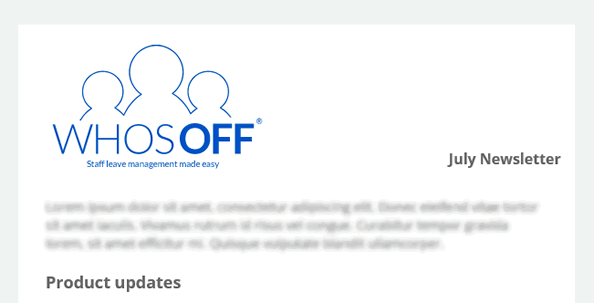Whether you live to work or work to live, everyone needs a holiday. Yet alarmingly, new research by a leading trade union has found that nearly two million Britons aren’t able to use their minimum annual leave entitlement – and the story is the same all over the world.
What is causing this shortfall? And how can companies create a culture that promotes taking a well-earned rest, rather than denying staff their legal allowance? Let’s look into this concerning issue.
What are the rules around paid annual leave?
While regulations vary from country to country, companies in most developed regions are required to offer their workforce a certain level of paid time-off. In the UK, the statutory holiday entitlement is 28 days for full-time workers, and employers can choose whether to include the eight UK bank holidays within this allowance.
But despite this legal framework, research by the Trades Union Congress (TUC) has found that nearly 1.96 million UK employees are not receiving their minimum paid leave entitlement. Even more concerning, 1.1 million workers are not getting any form of holiday at all – and the worst affected sectors are education, retail and health & social care.

Why aren’t some employees taking their full entitlement?
Although professionals might have a certain number of days’ leave on paper, the reality of taking that time off can be quite different. Many people work in a culture of presenteeism, where they feel too busy or too pressured to take a break.
There are many reasons why dedicated workers fail to use their entire holiday allowance, including:
- Unrealistic workloads – people simply don’t have time for a holiday, or the thought of trying to catch up when they get back deters them from booking leave
- Climate of overwork – everyone else in the company seems to be putting in unpaid overtime, and staff don’t want to appear as if they are ‘slacking’
- Inflexible or ill-informed managers – holiday requests can be denied or delayed, as managerial staff prioritise work deadlines over employee wellbeing
- Fear of not progressing – ambitious workers want to advance their career, and senior staff infer that this will mean going ‘above and beyond’ to impress them
In some cases, workers may not even be allocated the right number of days off in the first place, as their employers have failed to keep pace with changes in regulation.
How can we change the holiday culture?
In order to destigmatise annual leave, the first thing that has to evolve is the perception that ‘more means more’ in the workplace. The health benefits of taking time off work have been well proven – we discussed them in a recent blog post on reducing staff absences – and a recharged, reenergised employee can offer way more to the team than someone who is burnt out. It’s not about milking staff for all they are worth.
The second thing that has to change is holiday being seen as a burden on other members of the workforce. One of the reasons that many managers are reluctant to process holiday requests is the cumbersome paper or email-based process for booking annual leave. They may also fear about its impact on company productivity, as they can’t easily see who else is off on the dates being requested.
Leave management technology can transform the way that businesses coordinate holiday requests, to make processing paid leave much simpler to control. Moving away from manual systems to an online platform digitises all requests and approval processes, so nothing can get lost in inboxes or in-trays; plus, staff are automatically notified when their holiday has been approved, cutting down on the follow-up communications that many managers detest.
But more importantly, an online leave management system creates complete transparency over who’s off at any point in time – putting an end to workload planning worries and costly calendar clashes. Managerial staff can make informed decisions based on which team members have already booked annual leave, and ensure there is adequate cover at all times, minimising disruption to day-to-day operations.
By innovating the way in which holiday is managed, companies can begin to change their culture, encouraging staff to take time off. And they can easily keep track of how many days each employee has booked, to ensure they are using their full allowance.
Improve the way your business manages annual leave with WhosOff. Try our online software for free to see its benefits first-hand.
Photo by Pedro Figueras of Pexels.com

